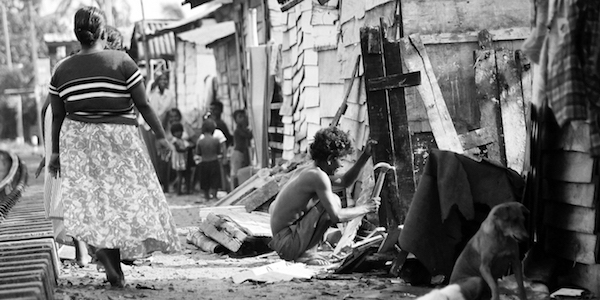If I say Facebook did it, people would wonder if I have developed some mental illness. If I say IMF and World Bank did it, economics buffs would cringe, because they were not even in the picture, at least directly. But if I point at the Rajapaksa family dynasty that has ruled the island for the past decade, many would agree (in fact, my Sri Lankan friends living in USA all agree on that one point). And if I point my fingers at China and their so-called predatory loan that “bombed” Sri Lanka, Western media would totally agree.
By Dr. Partha Banerjee,
Yet, all of the above are responsible for Sri Lanka’s present crisis. In fact, add to the mix ISIS and their brainchild Sri Lankan Islamic extremists that killed over two hundred people on the Easter Bombing of 2019…among other things…and you would get a comprehensive picture.
The country is exploding, people are dying, children have no milk, students have no papers to write their exams on, street lights are off to save energy, rice is hitting 500 Sri Lankan rupees per kilogram, and thousands of refugees are ready to cross over the Palk Straits to take shelter in India, paying brokers lakhs of rupees. It is a major human crisis unfolding in front of our eyes.
Time and time again, we have seen that Facebook with their propriety algorithm actively encouraged hate, violence, and rumor mongering leading to massive social unrests. Sri Lanka is no exception. Just like for-profit media, Facebook profits on sensational news, and no-news. Sri Lanka’s deep-rooted conflict between Sinhalas and Tamils – conflict that led to the long civil war – has not disappeared. And the ISIS-sponsored Easter Bombing created another layer of major social turmoil, this time between Buddhists and Muslims. Facebook let hatred and rumors spread unchecked, causing massive violence. In fact, the company later apologized.
The Chinese gave Sri Lanka a big loan, and the island nation went for it instead of going to IMF and World Bank. The “collateral” China demanded was the projects the loan would build and restructure, and a non-repayment helped them to basically annex the Hambantota port. IMF and World Bank, therefore, were never happy that the country did not go to them for help, and went to China instead. What would any powerful lender do if they lose a prospective borrower? They would find a way to get even, and create a situation so that the borrower is forced to come back to them later. They would make sure they came back.
That’s what happened just now. Sri Lankan government now has turned to IMF and World Bank for bailing the country out. And hardly anybody knows – because there is practically no discussion on how they do business across the world – that IMF and World Bank would impose their so-called Structural Adjustment Program or SAP when they give out the loan. The SAP would basically take over the government policies, and force the borrowing country run the administration following their dictates. What are the dictates? (1) Privatize the economy, (2) Cut all the pro-people government welfare projects, (3) Cut taxes on the rich, (4) Clamp down on labor unions, and (5) Total de-regulation, basically making the government monitoring of private corporations defunct. In India, we see such deregulation and privatization now, and it has destroyed India’s long-held pro-people economy, turning the country over to domestic and foreign corporations. We have seen it in Argentina, Greece, Philippines, and may other places.
On top of it, IMF and World Bank would force the borrowing country to drastically devalue its currency. Sri Lanka is about to touch 300 rupees for one U.S. dollar. India for its IMF SAP requirement, went from 55 Indian rupees to today’s 75 INR for one U.S. dollar — in just six years. Pakistan’s crisis has devalued its rupee drastically too.
For the next years – actually, for the next unforeseeable future – the borrower country would be thrown into a spiral where it would keep paying the steep interests, and never be able to repay the principal of the loan. Again, look at the Philippines, Greece, South Africa…and all.
Sri Lanka’s Indira-Gandhi-type Rajapaksa family dynasty with their dictatorial grip on power (and whimsical overnight shift to organic farming, angering fertilizer corporations) has caused massive damage. In fact, as of now, the entire ministry of Sri Lanka has resigned under pressure from the revolting people on the street, except for the Rajapaksa brothers who happen to be the country’s prime minister and president (both!).
Sri Lanka depended too much on its tourism, and depended too much on foreign currency to pay for its import of essential consumer products. Covid-19 has destroyed the tourism industry and depleted its foreign currency reserve, as it did in similar places like Bali, Indonesia.
Now, the country is on the verge of collapse.
Dr. Partha Banerjee, Labor Educator and Writer, Brooklyn, New York.






